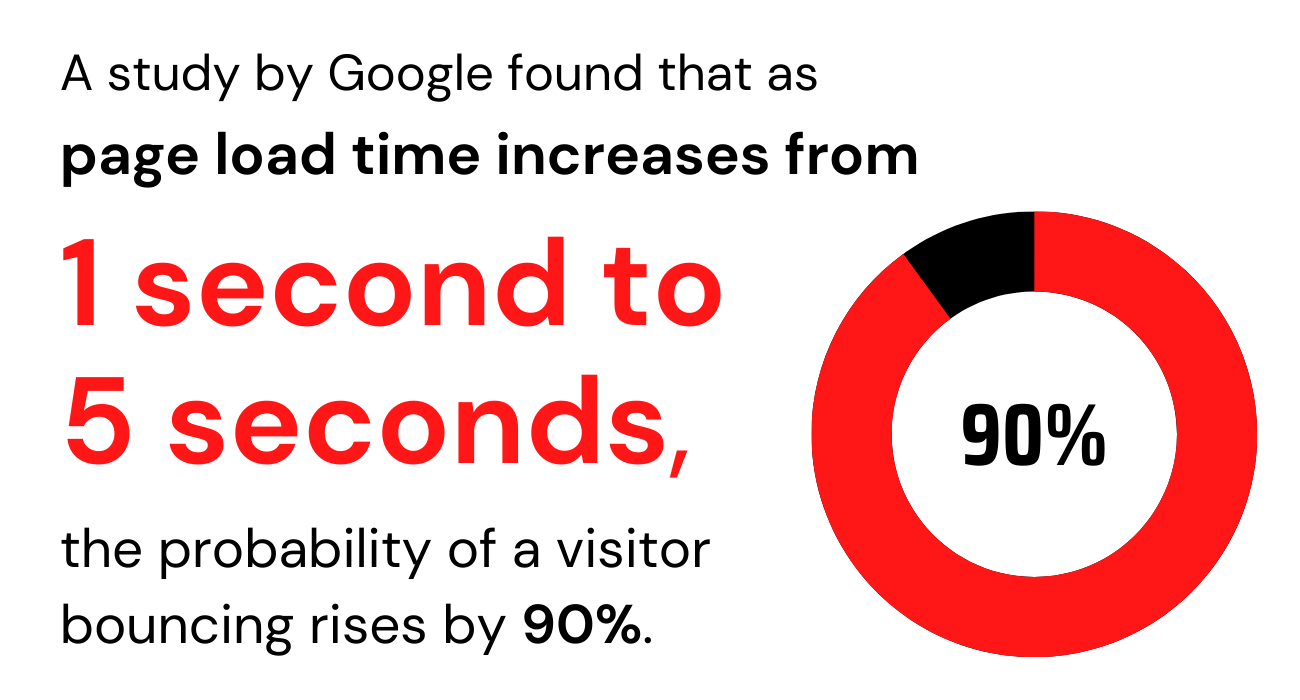Have you ever clicked on a website, waited a few seconds, and then just… left? You’re not alone. 53% of visitors will abandon a page that takes more than three seconds to load. If your site is slow, you’re losing potential customers before they even see what you offer.
For small businesses in Memphis, the Midsouth, and beyond, website speed isn’t just a technical issue—it directly affects SEO rankings, click-through rates (CTR), conversions, and revenue. Google prioritizes fast-loading pages in search results, so if your site is sluggish, your competitors are likely ranking higher and getting more traffic.
But don’t worry—there are ways to fix a slow website, improve your local SEO, and keep visitors engaged longer. Let’s break down why site speed matters, what’s slowing your site down, and—most importantly—how to fix it.
Why Website Speed is Critical for SEO & Business Growth
1. Google Prioritizes Fast Sites in Rankings
Google’s search criteria include hundreds of factors, and site speed is one of the most important. If your website loads slowly, Google assumes it provides a poor user experience, which can push your ranking further down in search results.

For Memphis and Midsouth small businesses, this is especially crucial. Local SEO is all about standing out in your community, but if your site loads too slowly, Google will prioritize faster local competitors—meaning fewer clicks, fewer leads, and fewer sales.
2. A Slow Site Hurts User Experience & Conversions
Speed doesn’t just impact SEO—it affects your bottom line.
Here’s why slow load speed costs you money:
- Higher Bounce Rates: If a page takes longer than 3 seconds to load, 53% of visitors will abandon it.
- Lower Click-Through Rates (CTR): Slow pages rank lower, meaning fewer people even see your website.
- Fewer Conversions: A study by Amazon found that every 100ms delay in load time cost them 1% in sales. If your small business relies on online bookings, sales, or inquiries, speed can make or break your revenue.
A fast, optimized website builds trust and keeps visitors engaged—making them far more likely to take action, whether that’s making a purchase, booking a service, or reaching out to your local marketing team.
3. Mobile Speed is Even More Important
More than 60% of all searches happen on mobile devices, yet most small business websites aren’t optimized for mobile speed.
Since Google uses Mobile-First Indexing, your mobile site is what determines your ranking—so even if your desktop site is fast, a slow mobile site will drag you down.
For Memphis and Midsouth businesses, this is a huge opportunity. Many competitors still have slow mobile sites, so optimizing for speed can give you an advantage in local SEO rankings.
What’s Slowing Down Your Website?
Before you can fix a slow website, you need to know what’s causing the problem. Here are the biggest culprits, and the most accessible quick-fixes
1. Large Image Files
Images are one of the biggest reasons a website slows down. High-resolution images look great, but if they’re not optimized, they drag your site down.
Fix:
- Compress images using tools like TinyPNG or Squoosh.
- Use WebP format instead of PNG/JPEG for faster load speeds.
- Ensure images are properly sized for screens (no need for 4000px images!).
2. Too Many Plugins & Bloated Code
If you use WordPress, Wix, or Squarespace, too many plugins or poorly coded themes can weigh down your site.
Fix:
- Audit your plugins—delete anything unnecessary.
- Use a lightweight, speed-optimized theme.
- Minify CSS and JavaScript using tools like WP Rocket or Autoptimize.
3. Slow Hosting & Cheap Servers
Not all web hosting providers are equal. Shared hosting (especially cheap options) means your site is competing for resources, slowing down load times—especially during traffic spikes.
Fix:
- Upgrade to a faster hosting provider (consider SiteGround, WP Engine, or Kinsta).
- Consider a dedicated server or VPS if you get high traffic.
4. Too Many Redirects & Broken Links
Every redirect adds an extra step before loading a page, which slows down the experience.
Fix:
- Use Google Search Console or Screaming Frog to find broken links and redirects.
- Limit unnecessary redirects to speed up load times.
5. No Caching or CDN
Without caching, your website reloads everything from scratch each time someone visits. A Content Delivery Network (CDN) stores copies of your site on multiple servers worldwide, reducing load time for visitors far from your main server.
Fix:
- Enable browser caching to load pages faster for returning visitors.
- Use a CDN like Cloudflare to speed up delivery.

The Best Fix? Partner with The Profit Link
Let’s be real—SEO, website speed, and local marketing can be complicated. You could spend hours (or days!) trying to fix a slow site on your own, or you could let experts handle it while you focus on running your business.
That’s where The Profit Link comes in.
Why Work with Us?
⇒ Speed Optimization: We’ll get your site loading lightning-fast to improve SEO.
⇒ SEO & Local SEO Experts: We help Memphis & Midsouth businesses rank higher
⇒ Conversion Optimization: A fast site = more leads, more sales, and more growth.
Whether your website was built by another agency, done DIY, or even created with AI, nothing beats working with local experts who know what works.
Final Thoughts: A Fast Website = More Customers
At the end of the day, a slow website is costing you traffic, rankings, and revenue.
But the fix is simple:
1. Optimize your images, hosting, and code
2. Improve mobile performance & local SEO
3. Partner with The Profit Link to ensure your website is fast, optimized, and working for you
Want a faster website?
Contact The Profit Link today, we’ll get you up to speed!




